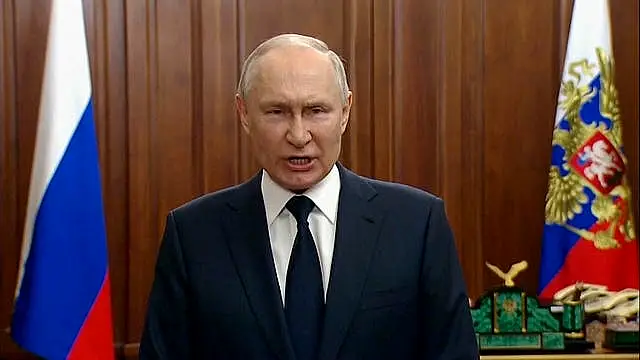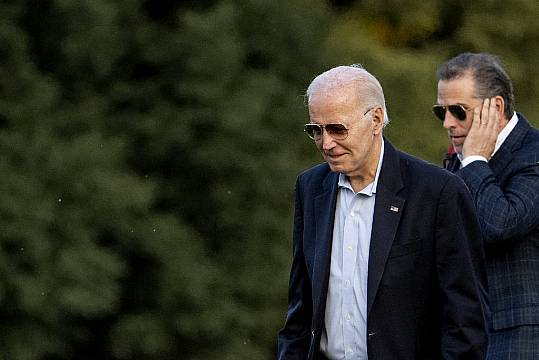President Joe Biden has insisted neither the United States nor Nato played any role in the turmoil in Russia.
A powerful mercenary group engaging in a short-lived clash with Russia’s military at the moment Ukraine is trying to gain momentum would seem like something for the US to embrace, but the public response by Washington has been decidedly cautious.
Officials have insisted this was an internal matter for Russia and declined to comment on whether it could affect the war in Ukraine as they look to avoid creating an opening for Russian President Vladimir Putin to seize on the rhetoric of American officials and rally Russians by blaming his Western adversaries.

Mr Biden said he held a video call with allies over the weekend and they are all in sync in working to ensure they give Mr Putin “no excuse to blame this on the West” or Nato.
“We made clear that we were not involved. We had nothing to do with it,” he said. “This was part of a struggle within the Russian system.”
Mr Biden and administration officials declined to give an immediate assessment of what the 22-hour uprising by the Wagner Group might mean for Russia’s war in Ukraine, for mercenary chief Yevgeny Prigozhin or for Russia itself.
“We’re going to keep assessing the fallout of this weekend’s events and the implications from Russia and Ukraine,” Mr Biden said. “But it’s still too early to reach a definitive conclusion about where this is going.”
In his first public comments since the rebellion, Mr Putin said “Russia’s enemies” had hoped the mutiny would succeed in dividing and weakening Russia, “but they miscalculated.”
He identified the enemies as “the neo-Nazis in Kyiv, their Western patrons and other national traitors.”
Foreign Minister Sergey Lavrov said Russia was investigating whether Western intelligence services were involved in Prigozhin’s rebellion.

Over the course of a tumultuous weekend in Russia, US diplomats were in contact with their counterparts in Moscow to underscore that the American government regarded the matter as a domestic affair for Russia, with the US only a bystander, State Department spokesman Matthew Miller said.
Michael McFaul, a former US ambassador to Russia, said that Mr Putin in the past has alleged clandestine US involvement in events — including democratic uprisings in former Soviet countries, and campaigns by democracy activists inside and outside Russia — as a way to diminish public support among Russians for those challenges to the Russian system.
The US and Nato “don’t want to be blamed for the appearance of trying to destabilize Putin,” Mr McFaul said.
Mr Biden spoke with Ukrainian President Volodymyr Zelensky over the weekend, telling him: “No matter what happened in Russia, let me say again, no matter what happened in Russia, we in the United States would continue to support Ukraine’s defence and sovereignty and its territorial integrity.”







